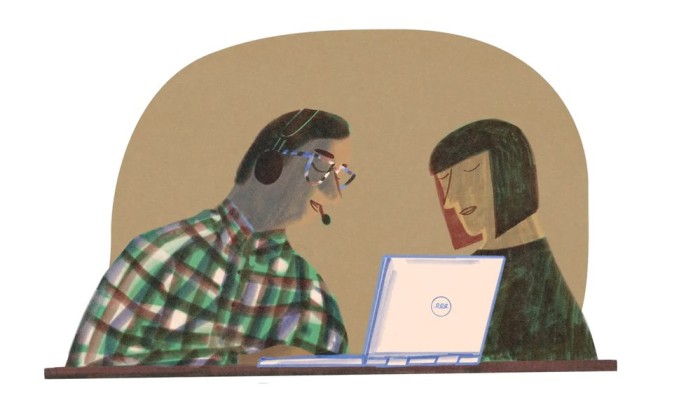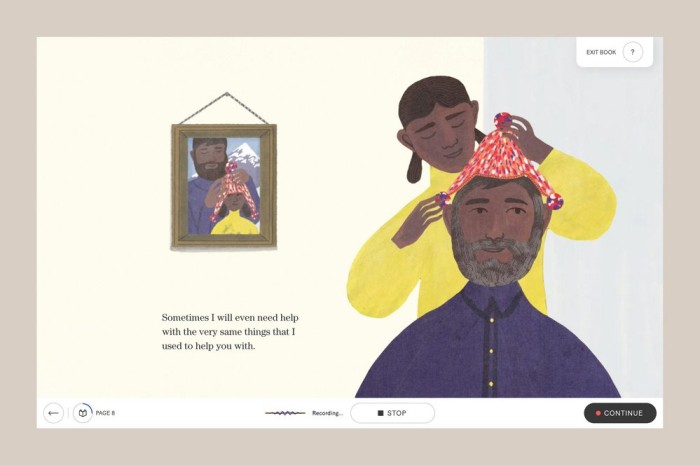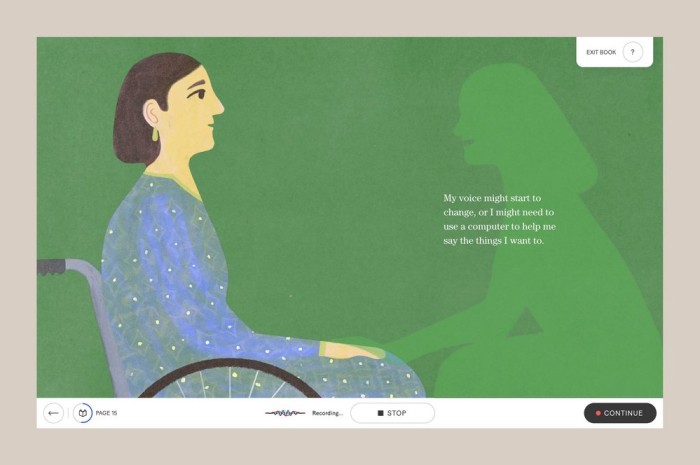Case study | Dell & Intel: I Will Always Be Me
Global tech companies Dell and Intel collaborate to help MND patients preserve their voice.
This article was originally published in Contagious I/O on 3 March 2022
Share this post

Dell Technologies and Intel, in collaboration with the MND Association and Rolls-Royce, have launched a platform to help people living with ALS, or MND as it’s called in the UK, preserve their voice and sense of self.
People diagnosed with MND (motor neurone disease), a neurodegenerative condition, suffer a number of limitations such as the gradual loss of speech. There is a way for those losing their speech to preserve their voice, known as voice banking. This is a process of logging one’s voice so that it can be used as the basis of an assistive speech service. But voice banking is a long and demanding task that involves reading through a long list of random words – often resulting in a digital voice that sounds somewhat robotic.

Created with VMLY&R, New York, I Will Always Be Me is a book-reading experience that can create a digital voice with just a 30-minute recording. This is possible as the story, written by author Jill Twiss, contains all the sounds and intonations needed to synthesise a human voice.
The e-book is written as a letter from a person diagnosed with MND to their loved ones, and touchingly emphasises that while their bodies and abilities might change, they will always remain themselves on the inside.

Users can create a free account on the campaign’s website. Here, the voice-logging technology will record the voice of whoever is reading the book, which can be converted into a digital voice that can be used on assistive speech devices.
While anyone across the world can use the campaign’s website and record themselves reading the book, the program that synthesises the voice for free for MND patients is currently only available in the UK.
‘Technology gets more powerful, more intuitive, and smarter every day, and I’m optimistic about what we’ll be able to do in the future – not only for individuals with MND but for the world at large,’ Liz Matthews, senior vice president of global brand at Dell Technologies, said in a statement.
Contagious Insight
Doing good / Social responsibility is becoming increasingly important for brands. According to Fox Business, more than 90 percent of shoppers worldwide are likely to switch to brands that support a good cause, given similar price and quality. Dell, Intel and Rolls-Royce are here creating a positive brand association by solving a pain point, effectively contributing to society through their tech innovations. In The Contagious Commandments, our very own Paul Kemp-Robertson and Chris Barth emphasise the unique position that brands have to do good through their specific skills, unique tech or market expertise. ‘Don’t ask what’s in it for you, ask what’s in it for them. The best advertising isn’t always advertising. Ease the friction, solve the pain points in the customer journey, and leave the world a better place after your campaign than it was before.’
Emotional bond / The power of storytelling is central to this campaign. Not only does it make the creative itself compelling, but it drives the narrative and gives people diagnosed with MND a voice (literally). The story itself both empowers people to preserve their voice, while also sending a message of positivity and hope to their loved ones as it is read aloud. Underscoring this all is the undeniable emotion of the campaign video. Striking an emotional impact can help ensure your brand and content sticks in people’s hearts and minds – research suggests that emotion and memory are linked, so find authentic ways to stir people’s feelings.
In our Samsung Brand Spotlight, we discuss how it can be difficult to build an emotional connection with consumers, noting that ‘Samsung needs to create products people love, but also make its brand beloved, and that’s why people-centric marketing plays such an important role in the company’s evolution’. For tech companies, the most natural way to build resonance with consumers is to use their expertise – the tech itself – to do good.


